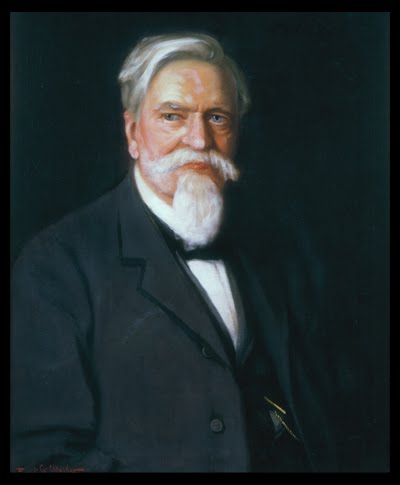
The first few posts on this blog have been pretty dry, mainly because I've been trying not to editorialize too much. That, of course, makes for a pretty lame blog. Thankfully my topic for this post is something I feel pretty strongly about. You need to read you some Jesse Stuart. Stuart was a schoolteacher in Greenup County, who become a well-respected author and poet in the 1930s. The son of a sharecropper, he studied under Robert Penn Warren (another Kentuckian we don't hear enough about) at Vanderbilt before returning to his native soil of "W-Hollow" to write about traditional Appalachian life, and eventually its struggles with post-war modernization. Anyway, at one time Stuart was mentioned in the same breath with Faulkner and Flannery O'Conner, won a Guggenheim fellowship and went to New York for signings and everything, but now he's kind of forgotten. When my mother was a kid in Elizabethtown Stuart was a household name and Kentuckians read a lot of his work in school (she was born in 1935). I don't really remember reading him much in school (I was born in 1971), and I don't know anyone my age or younger who has really heard of him. It's a pity.
Stuart really did an excellent job of humanizing the mountaineer; all of the hillbilly stereotypes are there (you got your moonshiners, folks married to kin, some toothless and barefoot- the whole nine yards, mainly because they are rooted in truth) but they are presented as neither tragic nor as a joke. Most are honest, hardworking people trying to get by the best they can, although some are pretty low and common. Just like anywhere else, but with better dialects. Although I've lived my whole life in Central Kentucky, my dad was born in an Appalachian coal town and I've spent quite a bit of time in Eastern Kentucky over the years, including Greenup County, and I recognize a lot of people in his characters. I guess what hits close to home for me is thinking about how at least some of my ancestors lived lives like some of these folks, which makes you really stop and think about how easy you have it by comparison.
If Stuart is read at all now, it's mainly his most famous novel Taps for Private Tussie , which is pretty much a comedy, or one of his accounts of teaching like The Thread That Runs So True, neither of which are his best as far as I'm concerned. If you really want to get a taste of the good stuff, pick up a copy of one of his short story collections and read "Men of the Mountains" or "The Sunday Afternoon Hanging". The coolest thing about Stuart is that he loved his land so much he saved up and bought all of the land his family worked on as sharecroppers in W-Hollow, over 700 acres, and donated them to the state as the "Jesse Stuart State Nature Preserve," so after reading his short stories you can actually go and hike around the sites he talks about. If you really get into it, I suggest going to Greenbo Lake State Park for their annual "Jesse Stuart Weekend" in the fall (ask for Paul Verespy when you call, he knows his stuff). If you are a real Kentuckian you owe it to yourself to take a little time off from Facebook and read you some Jesse Stuart!
By the by, if you don't check them out from the library, I also encourage you to buy his books from local sources, like the University Press of Kentucky or the Jesse Stuart Foundation.






